|
It’s difficult to describe the cultural whiplash, the immaculate jet set disorientation, that accompanies any traveller finding themselves in Bora Bora one day, and Sudbury Ontario a few days after that. As usual, I’m going to give it a go. It was my first time in French Polynesia, although the coconut islands of Tahiti, Mo’orea and Bora Bora have long haunted my dreams, having featured in the pages of a paradise calendar that I cut out and plastered across my dorm room wall. I’d long heard about lagoons so clear you’d think the sea was an infinity pool, about beaches that squeak and opulent overwater villas. In truth, a week in the Maldives had made this nothing new. I’d also encountered Polynesian culture before through travels to New Zealand, Hawaii and the Cook Islands. I’d even explored the oddness of a French Overseas Territory before, on the island of New Caledonia in the Pacific and the Atlantic island of St Pierre and Miquelon off the coast of Newfoundland. Yet it’s the people you meet who create the paradise you find, and the people you travel with too. Researching a story for an upcoming Islands and Wellness issue of Dreamscapes Magazine, I had set sail to capture the essence of multi-generational travel, how knowledge and attitude is transferred through experience. Joining me on this assignment was my mom and my daughter, completing a three-generation arc. We’d travelled together before, on a fantastic cruise around Atlantic Canada which resulted in a wonderful story for the Vancouver Sun, save for one critical detail: the cruise company went bankrupt shortly after our trip. Our days aboard One Ocean’s RCGS Resolute exploring Sable Island, Gros Morne National Park, St Pierre and the Magdalen Islands - and kitchen party nights in the ship lounge with the wonderful Barra MacNeils of Cape Breton - was truly a once-in-a-lifetime deal. On the other side of Covid, the time felt right to find a new ship, a different ocean, and see if magic can repeat itself. Cruising on a small ship is a world away from cruising on a big ship. I learned this on the Star Flyer in the Caribbean, on the Scenic Eclipse down the coast of South America, and onboard the Wind Spirit as we anchor in Mo’orea surrounded by the island’s sharp granite peaks. Unveiled in 1988 as one of Windstar’s original vessels, the old girl – as her affable captain referred to her – is a beautiful ship: four towering masts, a fantastic crew, plenty of water toys, and just the right mix of luxury and adventure. We shared a cabin on the lower deck, and as the only child on the ship, my daughter quickly stole the show, running about as if she owned the boat. We visited a vanilla plantation and pearl farm, hired a scooter to circle Bora Bora (twice), kayaked and stand-up paddle boarded, and took advantage of some of the best snorkelling on the planet. Chats with the kids about shark conservation bore fruit when I watched my daughter jump into the sea with dozens of black-tip reef sharks, the first passenger to do so. The next day, my mom was molested by lovable stingrays in search of a cuddle. We listened to local storytellers, devoured fresh tropical fruit, did the cha-cha on the pool deck, and conversed with a diversity of personalities from around the world.
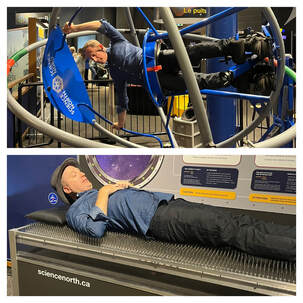 A few days later - luggage successfully retrieved after being lost in-transit between Tahiti, Los Angeles and Vancouver - I took my second red-eye of the week to catch an early morning flight from Toronto to Sudbury. The last time I was in the Big Nickel was for a book tour in 2013, when I spoke at the local Chapters bookshop. This time I had arrived to deliver a closing keynote at the Travel Media Association of Canada’s Annual Conference, which gathered over 200 of the country’s top travel writers, PR pros, influ..content creators, destination marketing organizations, and other professionals that make the business of travel media tick. It’s one of the few opportunities my profession has for stories to be told and sold, for connections to be forged, and destinations to be discovered. Workshops and panels inspire professional and personal development, and this year’s host city of Sudbury put on a show for our travelling circus. Still bombed from the red-eye, I could have fallen asleep on the bed of nails inside the excellent and interactive Science North centre (a few minutes in the gyroscope woke me up and turned me green). An outstanding meal at the highly-rated Kouzzina was the first time I’ve had my appetite for carpaccio truly satiated. The event was an opportunity to reconnect with colleagues I haven’t seen since the pandemic, all of us bearing a few scars of that fever dream. It was an opportunity to chat about our industry, to learn, to gossip, to grow, and to plan the adventures you’ll be hearing about in the future. It was also an opportunity to taste fine Irish Whiskey (courtesy Tourism Ireland) and participate in the best karaoke party this side of Osaka. Sabrina Robson of Destination BC belts a version of Amy Winehouse’s Valerie that kicked up a storm and left the veteran karaoke DJ speechless. I did my part with perhaps the best karaoke performance of my career: Home for a Rest by Spirit of the West was simply the right song, delivered at the right time, for the right crowd. My closing keynote addressed the past, present and future of travel media. I told everyone that we’ve been at the crossroads of change for so long I’m surprised nobody’s opened up a hotel resort at the intersection to take advantage of it. I looked back to the remote and recent past, discussing the transformations of mediums, the growth of tourism, overtourism, and the challenges and opportunities awaiting us around the corner. Stitched throughout was my own journey, discovering how to travel as an awkward teenager (Lawless Rebel!), learning how the media works as a student, and how I used curiosity to recognize potential. My goal was to celebrate our unique profession, and celebrate our good fortune to live and work in Canada. Receiving a standing ovation from my peers, colleagues and friends was truly humbling, making Sudbury yet another trip I’ll remember for a lifetime. Proving yet again: a bucket list experience is only as special as the people you share it with.
0 Comments
Two hundred and fifty CEOs, fifty-two ministers of tourism, three hundred travel journalists, and nearly three thousand professionals have gathered to redefine tourism in the post-pandemic era, selecting a rather controversial venue for the occasion. The annual World Travel and Tourism Council (WTTC) Global Summit has also attracted movie stars like Edward Norton, prominent international TV anchors and a spattering of supermodels, some of whom no doubt shared my unease flying into Riyadh, Saudi Arabia. With its torrid reputation for human rights and on-going diplomatic spat with Canada, friends and family were genuinely concerned for my well-being. Despite the kingdom’s attempt to reinvent itself as a tourism mecca guided by the vision of its millennial Crown Prince, travel advisories cautioned me to log out of social media apps, avoid government buildings, and adhere to strict local customs. My wife also advised me to please keep my mouth shut, knowing full well I have an inherent incapacity to do so. Supplied with a new Saudi tourist visa and with an invitation for the conference, I had no idea what to expect. I didn’t need pyro-drones topping off a multi-million-dollar fireworks show to witness Saudi Arabia’s eye-boggling investment in tourism. It was immediately evident pulling up to Riyadh’s palatial Ritz Carlton Hotel and Conference Centre. The production values of the WTTC event were staggering, along with impressive showcases for Saudi Arabia’s four high-profile giga-projects – developments that aspire to create entire cities out of thin air. The CEOs of Marriott, Hilton, Carnival, Accor, Hertz and Hyatt were on stage, along with dignitaries from Portugal, Austria, South Africa, Costa Rica, the USA, the UK and Australia. CNN’s combative host Richard Quest grilled them about how the tourism industry intends to pay more than just lip service to sustainability, a major theme throughout the two-day conference. With great fanfare, the WTTC released the first-ever report to measure tourism’s impact on global carbon emissions. The conclusion is that airfare, hotels, cruises and the like account for 8.1%, less than the previously estimated 11%. Reporters questioning the report’s methodology were reassured that the numbers would be scrutinized by governments and NGOs around the world. After the scourge of over-tourism and the challenges Covid, a revitalized industry is taking responsibility seriously. Buzz words and catchphrases flowed thick and fast: community engagement, greenwashing, decarbonization, revenge tourism, zero gravity urbanism, follow the data with next generation artificial intelligence. “We are not in the service industry, we are in the care industry,” said Hyatt Hotels CEO Mark Hoplamazian. Above all, there was a lot of overall optimism. Despite a labour crisis, inflation, China’s iffy recovery and the tragic war in Ukraine, global tourism’s pandemic recovery has been faster and fiercer than anyone expected (Destination Canada revised and shortened its own tourism recovery projections too). Demand is quite simply outstripping supply, bringing with it opportunities and issues. Former UN Secretary General Ban Ki-moon voiced his frustration that government climate initiatives were lagging, supermodels Elle McPherson and Adriana Lima launched new Awards for Sustainability, the WTTC released various economic reports, and multiple newsworthy deals and announcements were made. Corporate tourism is a massive industry so I won’t bore you with the details, but it was hard to ignore the rather large elephant in the room. An elephant called Saudi Arabia. “I want women in Canada to know that our lives here are not what they think our lives are,” explained Alhanouf Aldrees, a cultural manager at Riyadh’s spectacularly restored Diriyah UNESCO World Heritage Site. I’d made a point to engage with as many Saudis as I could, asking thorny questions so I could hear their side of the story. What they shared left me in little doubt that the country is experiencing neck-bracing social change, reminding me of how quickly everything transformed when I lived through the fall of Apartheid. Saudi Arabia’s Crown Prince Mohammed Bin Salman (popularly known as MBS) is smashing traditions with an iron fist, breaking both glass ceilings - and political opponents - in his goal to modernize and restore his kingdom after decades of conservative religious isolation. Supported by Ivy League-educated staff and enjoying widespread domestic support from a youthful population, MBS wants to spearhead a new global economic landscape. You’ve likely heard about the plight of Saudi women, the persecution and murder of Saudi opposition (including a prominent US-based Saudi journalist in grisly fashion), the brutal proxy war in Yemen, mass beheadings of local activists, and the infamous 2017 Royal purge that took place in the same Ritz Carlton hosting the WTTC event. You probably have not heard about the legal reforms assuring Saudi women of their independent right to drive, work, remove their abaya, marry, divorce and travel. We don’t hear how hardline religious authorities have been stripped of their influence and power, or that MBS has denounced the hardcore Wahhabism that Saudi Arabia has traditionally used to promote Islamic extremism. We certainly don’t hear much about Saudi Arabia’s striking skyscrapers and sprawling neon malls, busy late-night highway traffic and massive shopping palaces. The news doesn’t cover MDL Beast Soundstorm, an annual desert concert that attracts more than two hundred thousand people from around the globe (this year headlined by Bruno Mars, Post Malone and a dozen electronica superstars). Did you know that this year’s Red Sea Film Festival in Jeddah screened LGBTQ+ movies, celebrated women in cinema, hosted a conversation with Spike Lee, promoted movies that challenged Islamic practices, and claimed zero censorship? Cinemas were unbanned just five years ago, and yes, homosexuality is still illegal. I’m struggling with the contradictions too, but before you fire up your outrage, consider speaking to the people who live here. Tourism has always transcended politics and media. “If Saudi Arabia reaches out,” WTTC CEO Julia Simpson tells me, “our job in tourism is to reach back.” This is why WTTC members are investing around US$10.5 billion into the country, opening major hotels, resorts, air routes, cruise terminals and dozens of commercial developments. Princess Haifa Al Saud, the kingdom’s impressive Vice Minister of Tourism, says that one hundred thousand Saudis are being trained in hospitality to work in fully sustainable resorts. It is Dubai all over again, employing the latest technology, and doubling down on ambition. The four giga-projects are too mind-boggling to get into too much detail. A 170 km-long, 500m-high, 200m-wide mirrored skyscraper city for nine million people? Watch the promo video for The Line and I dare you not to gasp. There are massive tourism developments on the Red Sea, in Riyadh, and in the rocky desert of AlUla. Neom’s Ewok-fashioned ski resort, Trojena, looks like something out of a science fiction movie, and all of it boasts “next generation AI” so as to be “fully sustainable” with “cutting-edge design” from “the world’s leading architects.” If you build it, they will come, and the Saudis are building big, spending an estimated US$1 trillion to build a global tourism economy, and increase its non-oil GDP from 16% to 50% within a decade. The world’s largest desalination plants water the desert, and the world’s largest airport (under construction) hopes to welcome 100 million visitors by 2030 - all paid for by the world’s second-largest oil reserves. And here lies the elephant in the room. Pumping millions of barrels of oil to pay for sustainable mega-projects, admirable as they may be, does little to mitigate global climate change. Climate scientists are imploring nations to keep the carbon in the ground, including Canada, which has the world’s third largest oil reserves. I cannot help but wonder if Saudi Arabia’s jaw-dropping showcase developments – built by migrant workers in the scorching desert heat – might end up serving the mega-rich as escape pods for climate disaster. At Riyadh’s wild exhibition for The Line, I ask a proud guide who will clean the dishes, or pick up the garbage. “There will be no blue-collar workers here,” he replies. What about crime? “There will be no crime in The Line.” Next generation AI and robots will take care of all of it. Stop me if you’ve heard that one before. The line between utopia and dystopia feels very thin indeed. “Travel is all about faces, not places,” says my cheerful Riyadh guide Ali, and he’s right. Plenty of mega-developments across the Middle East look to redefine the region in a post-oil future, but it’s the Saudis themselves who offer something truly unique. Their warm hospitality is genuine and delightful. I experience “welcome welcome!” everywhere, accompanied by smiles, handshakes, curious questions, and gratitude for visiting. I relish the fragrant, blonde Saudi coffee served with sweet dates at every entrance, enjoying the smell of exotic spice in the desert breeze. Locals insisted on buying me a $20 mocktail at a Jareed Hotel bar, although bar is the wrong word. Alcohol remains strictly illegal in the kingdom, a major hurdle if the kingdom hopes to attract legions of international holidaymakers. One step at a time. I end up speaking to almost a dozen local women in Riyadh and the coastal city of Jeddah, admittedly a small sample size, but I have drawn conclusions from fewer interactions before. These women were highly educated (tertiary education is free) and well-travelled, staking out prominent positions in politics, culture and business, stepping into the light with their new-found legal independence. A minority of Saudi ‘liberals’ are dispensing with religious traditions altogether, adopting modest western clothing, although still adhering to rules like separate recreational areas. Most continue to embrace Islamic traditions and culture with great pride and surprising flexibility within the Koran’s interpretative framework. One asks me: “Why do women in Canada feel they can speak for my rights? Why do they think I’m oppressed? Do they know my life?” Even with the best intentions, we can’t claim to always know what is in someone else’s best interest, especially if we don’t engage and listen to them first.
As for the WTTC Global Summit, any event that brings together such a diverse group of people, cultures, companies and ideas can only be a good thing. Tourism breaks down stereotypes, facilitates dialogue, promotes engagement, and builds on generous hospitality. Next year the WTTC Global Summit is in Rwanda, another country with a problematic past, and tremendous tourism potential. If the world reaches out, we should always reach back. This month I attended a conference in Victoria dedicated to sustainability in tourism. Speakers discussed the virtues of authentic, community based tourism, regenerative practices, decarbonization, and tourism as a force for reconciliation. All very inspiring, especially hearing from companies and organizations that are putting these ideas into practice. You can read what I distilled from the IMPACT conference in my Bucket Listed column for Can Geo Adventures: Is Canada on the cusp of a tourism enlightenment? Some key lines to share:
Nobody needs reminding that the world is changing dramatically. It’s become a daily ritual to read about extreme weather events. Within the past year, most of Canada (and many parts of the world) had some sort of run in with heat waves, floods, droughts, wildfires, extreme cold snaps, or intense storms. What does this mean for tourism, and what does it mean for bucket lists? I’m on a Tundra Buggy exploring the permafrost outside of Churchill, looking for hungry polar bears emerging from their summer dens as they migrate north to the frozen ice of the Hudson Bay. Problem is, warmer temperatures mean the ice is taking longer to freeze, and the biological clocks of the polar bears cannot keep up with the sudden shift in seasonal weather. More and more Churchill bears are not surviving into the winter months to feed, which makes the world’s most southerly population of polar bears also the world’s most threatened. This explains why Churchill’s bear population has declined by 30% since the 1990s. As the buggy slowly make its way forward, I see the tattered remains of a bear on the ground. It either starved to death, or was attacked and eaten by other bears in order to survive. I still see dozens of healthy bears on this trip, but that dead bear is a sign of things to come. It was one Jasper National Park’s star attractions: the Ghost Glacier, a dramatic, hanging wall of ice perched above Edith Cavell Pond. On the morning of August 10, 2012, that heavy ice wall crumbled into the lake, creating a tsunami that washed out trailheads, parking, and quite fittingly, a Parks Canada interpretive board about the impact of climate change. Not too far away is the famous Athabasca Glacier. It has long attracted visitors with the promise of exploring the glacier on foot or on customized buses. The Athabasca glacier has lost over half its volume in the last century, and receded over 1500 metres. Along with up to 90% of Alberta’s glaciers, Athabasca is projected to disappear entirely between 2040 and 2100, and once it’s gone, it’s gone. Visitors are well aware of this, resulting in a boom of what one study calls ‘Last Chance Tourism.’ It reminds me of Douglas Adam’s book, Last Chance to See. Back in 1990, the popular author visited unusual and endangered animals around the world. Unfortunately, some of the species he discovered, including the Northern White Rhino, are now functionally extinct. Red sandstone cliffs are eroding in Prince Edward Island and the Bay of Fundy, while rising sea waters are predicted to swamp Nova Scotia’s iconic Peggy’s Cove. Wildfires are devastating forests and national parks from Banff to Vancouver Island. The Dempster Highway and other northern roads are crumbling as the permafrost – ‘the glue that holds the northern landscape together’ – melts with warming temperatures. Ski resorts in Western Canada will suffer with changing alpine conditions, losing a quarter of their current seasons as temperate cities like Vancouver turn dryer, hotter, and begin to mimic present-day Southern California. Icesheets will collapse and icebergs will melt, animals will change their migration habits if they can, heat domes will cripple major cities in summer. Wetlands will dry up and the parched prairies will wilt.
I could go on, but there’s enough depressing news already. Instead, let me conclude with opportunities. Traditionally cold, northern locations will welcome more tourists and enjoy longer summer and shoulder seasons. Canadian tourism will boom because snowbirds won’t be flocking to the scorching south, although get ready to lay out the welcome mat for sun-birds migrating north. Tourism activities will adapt, innovate or fail, and new, previously unimaginable experiences are guaranteed to emerge. Billions of dollars will be spent as we adapt, protect, and evolve to a new climate reality. As I’ve written previously, Canada has an opportunity to emerge as one of the planet’s premier tourist destinations, both post-pandemic, and into the foreseeable – and now largely unavoidable – future. Still, the reality of the Canadian bucket list hit me when I saw that dead polar bear on that cold November day outside of Churchill. Fact is: it’s no longer a case of us ticking off something special before we kick the bucket, but rather, before it disappears forever. 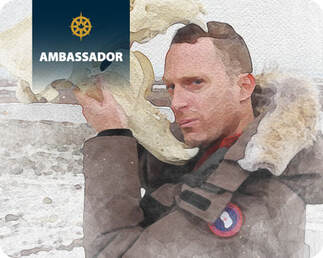 Wouldn't it be fun to go on a bucket list adventure with some of Canada's top photographers, explorers and travel journalists? Yes, it would. I'm delighted to become a Royal Canadian Geographic Travel Ambassador, continuing the great work of this illustrious society to promote the natural and cultural wonders of Canada. This means I'll be hosting select, exclusive trips that tick my own storytelling and adventure boxes, and belong on anyone's Canadian Bucket List as well. Working with fantastic companies and brilliant guides, I'll be enhancing your experience with stories, advice, support, a bucket list presentation, and the knowledge you're indeed enjoying a once-in-a-lifetime adventure. August 23 - 30, 2022: Prince Edward Islands Culinary Delights by Bike Cycling across PEI is pure bucket list: incredible scenery, spectacular coastline, literary and Indigenous history, and the best seafood on the planet. Foodies and adventurer's rejoice! This amazing itinerary combines it all together, as our bags are shuttled ahead to lovely inns and lodges, and our carefully curated itinerary delivers the best experiences on the island. The terrain is mostly flat, and you can even choose to do this week-long trip on an e-bike. I've been working with Ottawa-based Great Canadian Trails for years, and they've perfected the art of a quality, bucket list outdoor Canadian experience. It's going to a blast, culminating with a stay, farm tour and feast at rockstar Chef Micheal Smith's countryside inn. Click here for information, and bring an appetite! August 24 - 30 / August 31 - September 4, 2023: Discovering Banff by Horseback Discovering one of the world's most spectacular alpine landscapes on a 6-day horse ride, staying in luxury yet rustic backcountry lodges, sharing wild stories with fine wine by the crackling fireplace, SIGN ME UP! They did, which is why I'll be hosting two trips in partnership with the fantastic Banff Trail Riders. We'll be riding along a historic pack trail and up Allenby Pass, crossing jagged rock formations and hitting altitudes above 8000 feet. Mountain air, bubbling rivers, wildflowers, soaring peaks, and a great chance t encounter wildlife along the way. Let's tick this one off the bucket list together. Click here for more information and giddy up! Can Geo Adventures are working with fantastic tour operators and other fine Travel Ambassadors to showcase the very best adventures across the country. Check them out, and I hope to see you on the road! One of the wilder news items I've come across is a financial report: “Based on the expert analysis and our database of 480+ CA industries, IBISWorld presents a list of the Fastest Growing Industries in Canada by Revenue Growth (%) in 2021.” After Covid mugged Tourism, kicked us the ground, stole our wallets, and insulted our mothers, these analysts are predicting a remarkable return. Call it: The Revenge of Tourism: This time, it’s personal. The Top 5 Industries:
The theory goes like this: Following a similar pattern from previous pandemics - most notably the Spanish Flu a century ago - we’ll put Covid to bed, gingerly at first, and then with more confidence. After lockdowns and restrictions, after having no events or functions or festivals or parties, there’s going to be a social explosion. Consider ticker tape victory parades for the soul, as the entire planet blows off its collective steam. Some travel experts are already warning the hospitality industry to expect bad behaviour from their guests, because everyone is going to be reaching for that extra drink, saying: “you know, what the hell!” I mean, normally, we’d wait, or hesitate, or think about tomorrow, but after a year of no tomorrows, who cares? Heaving celebrations are expected, sexual norms will be relaxed, decadence and hedonism will reach new heights. Romance, adventure, pampering, relaxation, partying – threading it all together is Tourism, which explains the wild growth predicted above. As government financial support filters through the economy (most notably the $1.9 trillion relief package in the US,) we’re about to enter a bull market for the ages. The horrors of Trumpism have somehow been averted, the masses are wising up to the dangers and ultimate folly of social media. Trade wars have been put on the backburner, and even though China and Russia continue to flex their bulging muscles – and quagmires exist in Myanmar and other failed states – optimism deserves to abound. I personally believe we’ll look back on this decade as one of the most exciting, innovative and positive of the century. 2001 gave us a disaster, 2008 a meltdown, 2016 a disastrous meltdown. 2020 was the turning point, but the pandemic will be the accelerant for many positive social, technological, professional, and environment shifts that would not have occurred otherwise. It’s been a slog and yes, the suffering has been tremendous. While the long-term impact may be devastating for some, others will find the silver linings so thick they’ll be able to skate them. After wobbling thanks to explosive and largely unanticipated growth, the Great Reset has allowed global tourism to take stock, buckle up, and luck avoid the unsustainable mistakes of overtourism. The focus will shift to quality over quantity: more magic, less line-ups. All this travel will also make the world smaller, kinder and closer. As we all went through the pandemic together, we’ll emerge with something we’ve lacked for ages: a common purpose and global identity. We all went through it, what bigger ice-breaker do you need? You can’t do what I do and not be an optimist. And yet, there’s one tiny fact most exuberant forecasters are omitting. The bigger the roar, the harder the fall. The pattern of pandemics is a blazing era of growth, followed by an inevitable market crash. A century ago, the roaring twenties led to the Great Depression, which left a scar on all the decades that followed. It makes me recall the Pharoah’s dream in the Bible’s story of Joseph. Expect seven fertile years, followed by seven years of hardship. We’re at the cusp of an extraordinary period of success, but it will end, and it will end hard. But let’s worry about that in a couple years. For now: get the vaccine, wait for the gates to open, and let’s prove the analysts of IbisWorld right.
|
Greetings.
Please come in. Mahalo for removing your shoes. After many years running a behemoth of a blog called Modern Gonzo, I've decided to a: publish a book or eight, and b: make my stories more digestible, relevant, and deserving of your battered attention. Here you will find some of my adventures to over 100 countries, travel tips and advice, rantings, ravings, commentary, observations and ongoing adventures. Previously...
July 2024
Categories
All
|

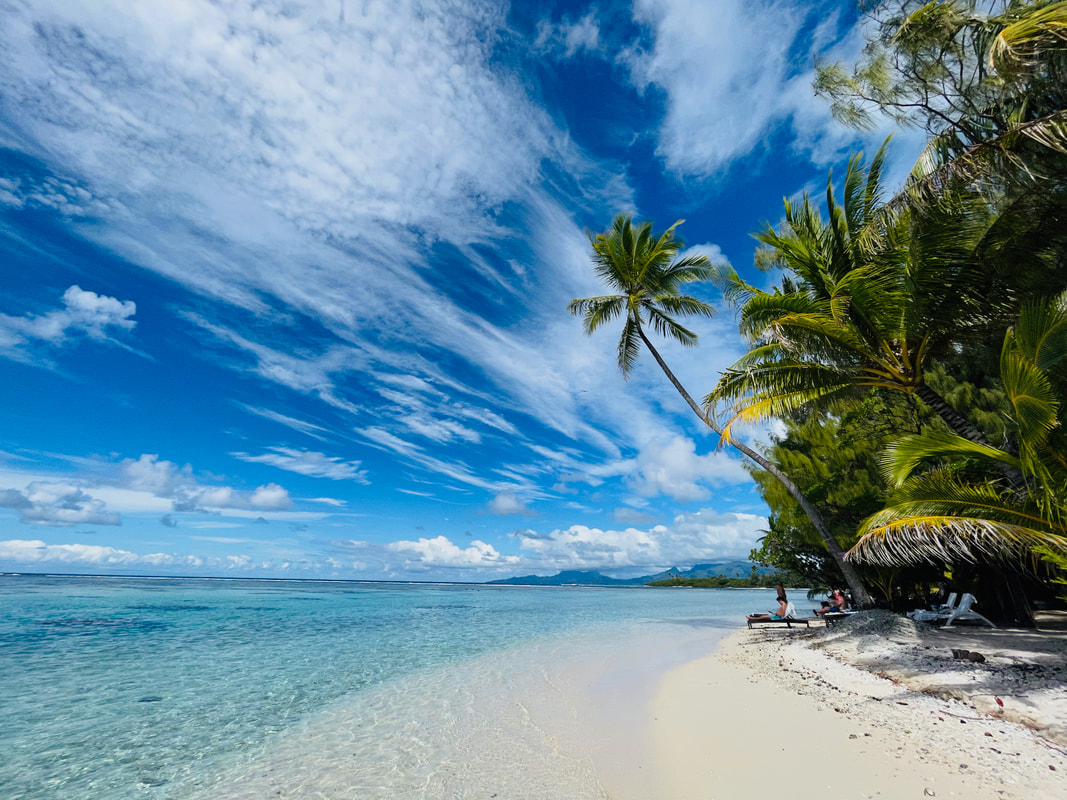
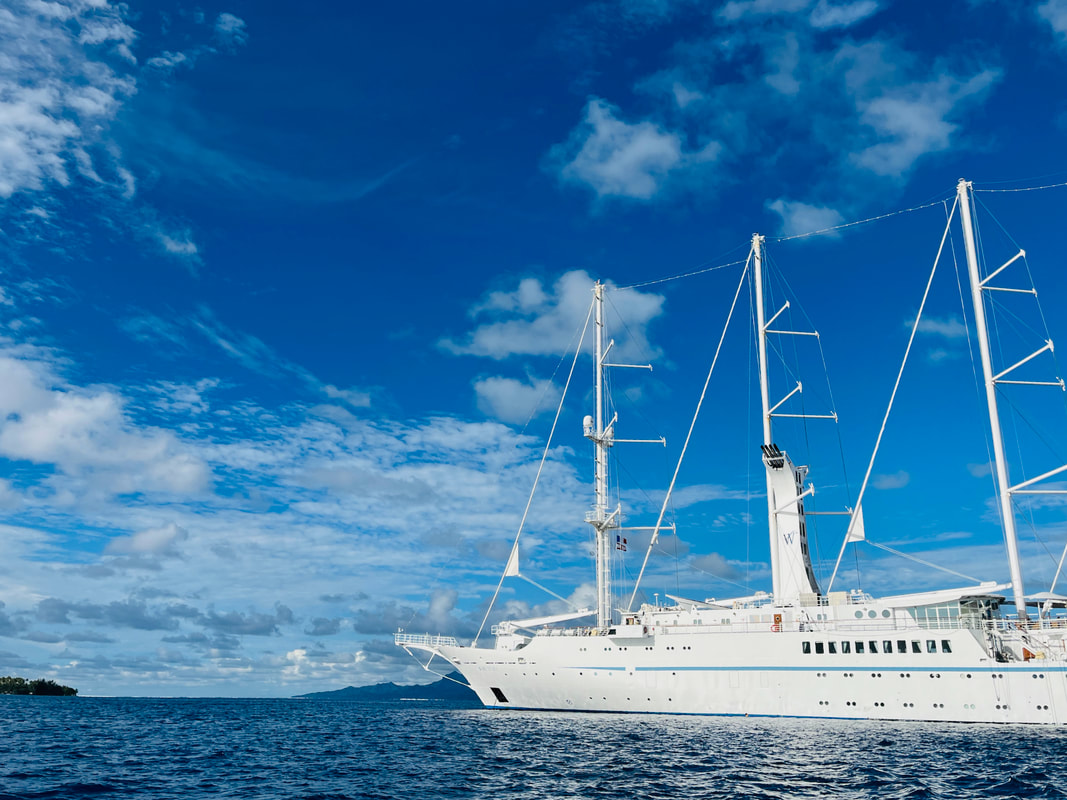
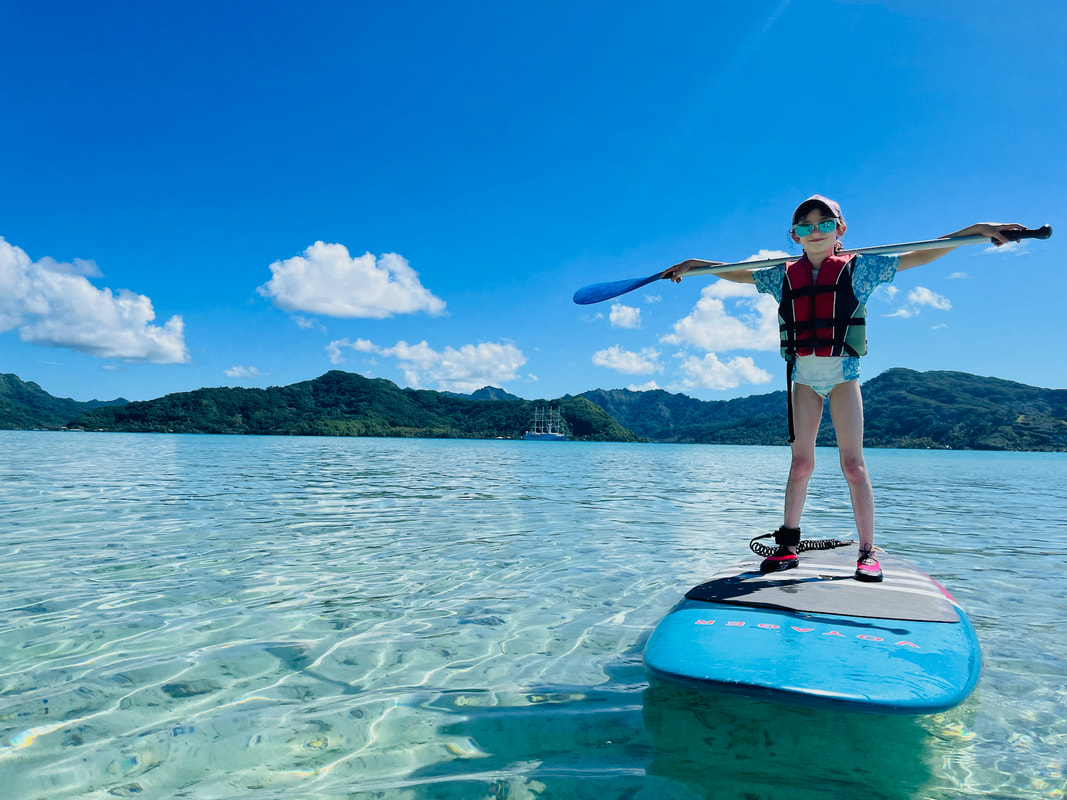
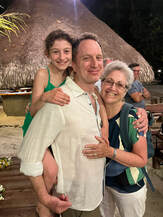

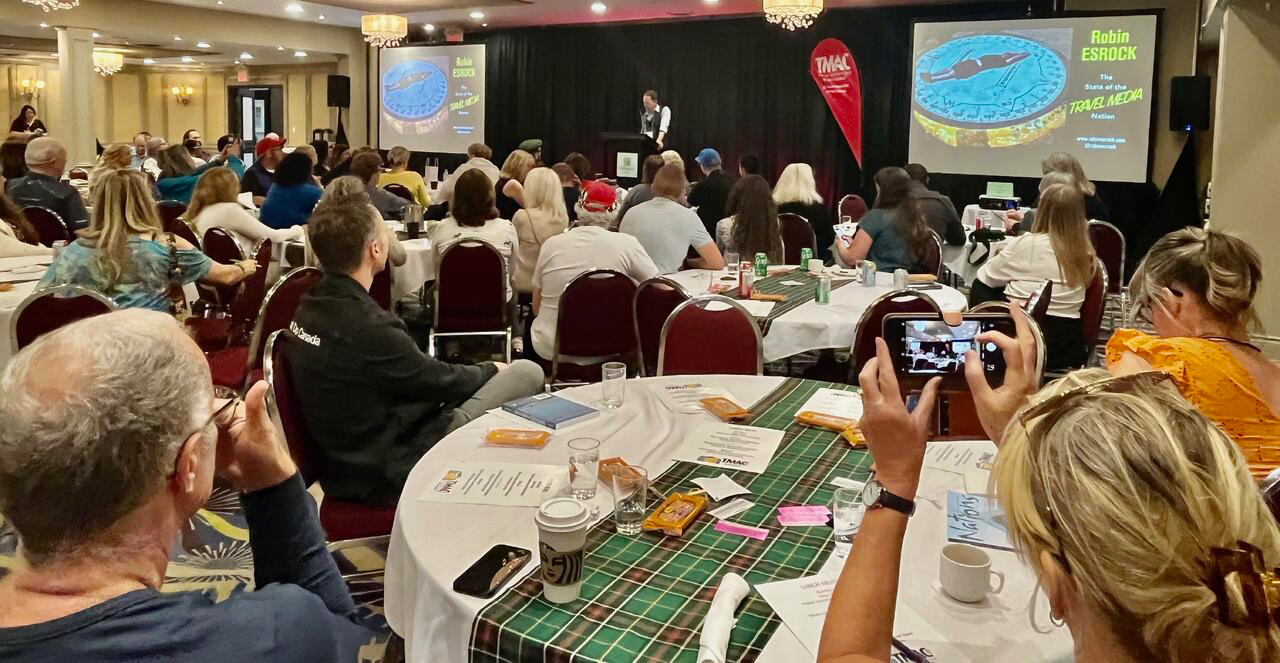

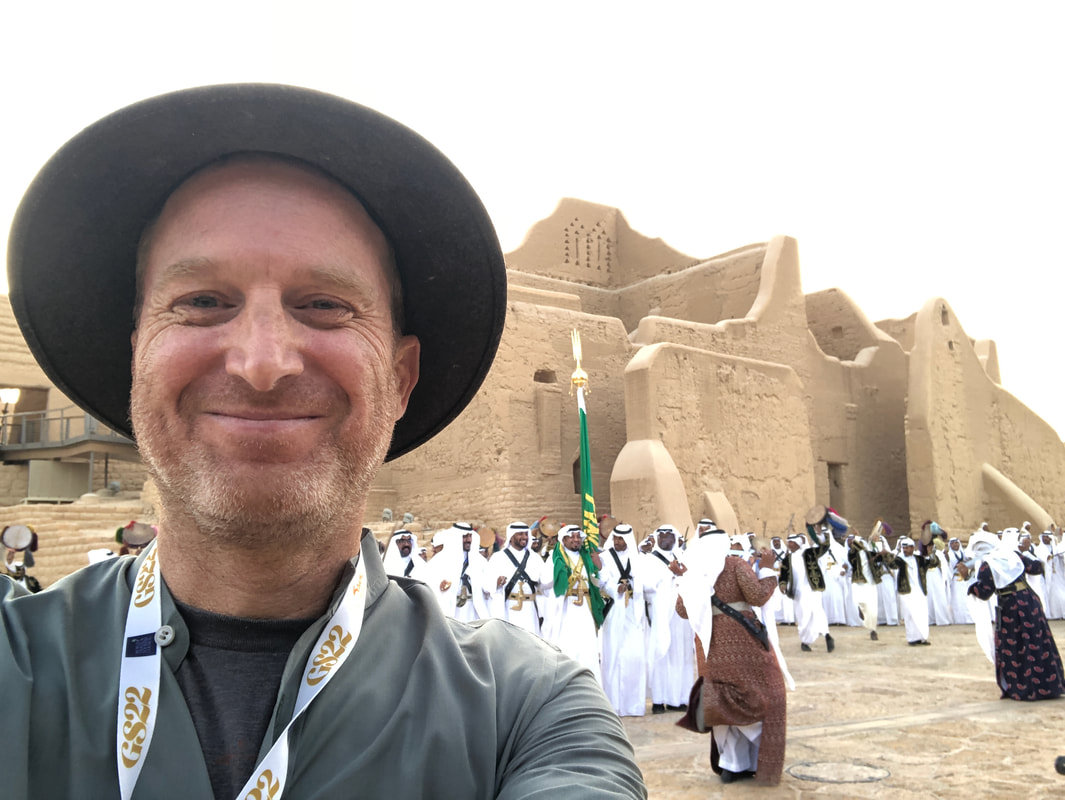
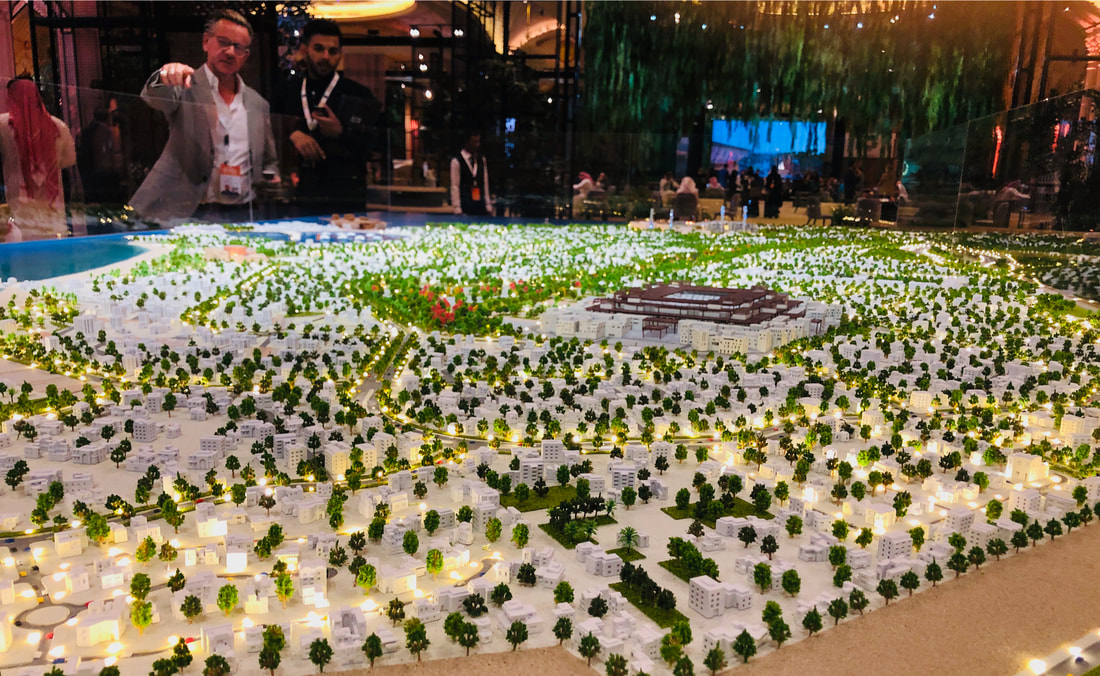

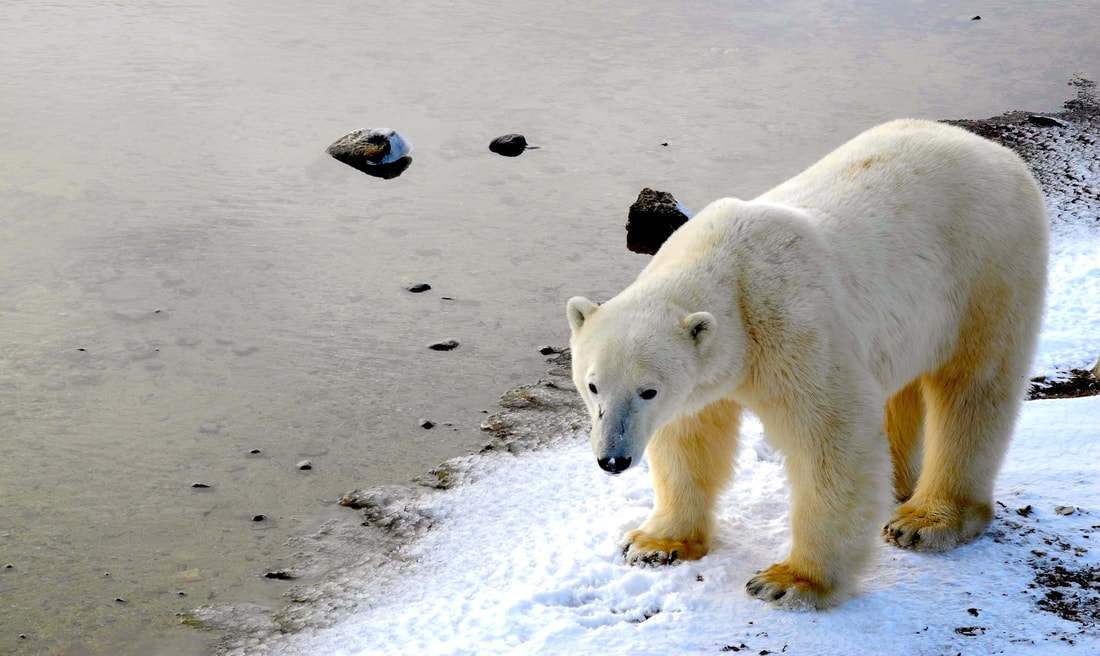
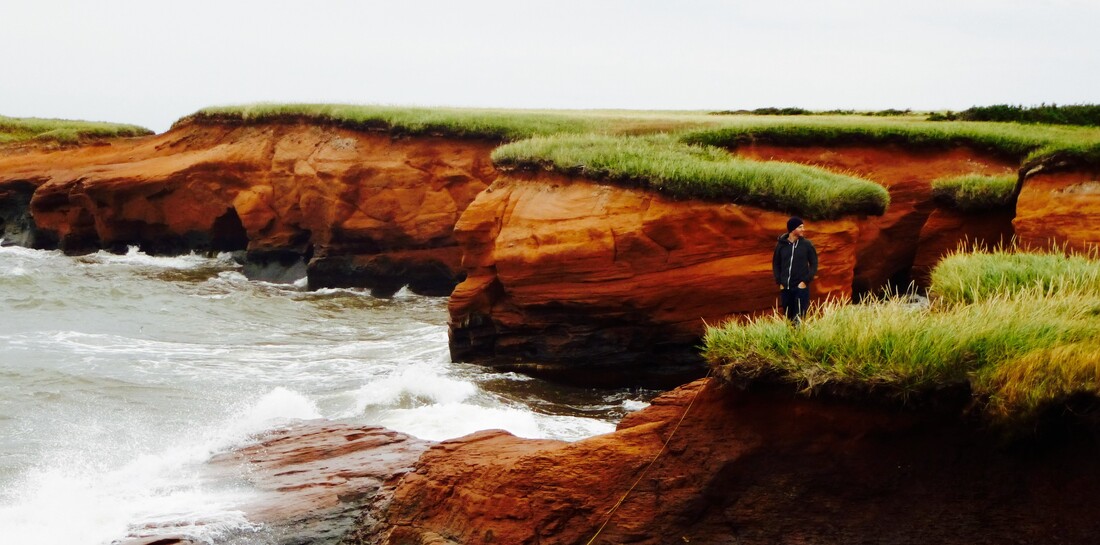
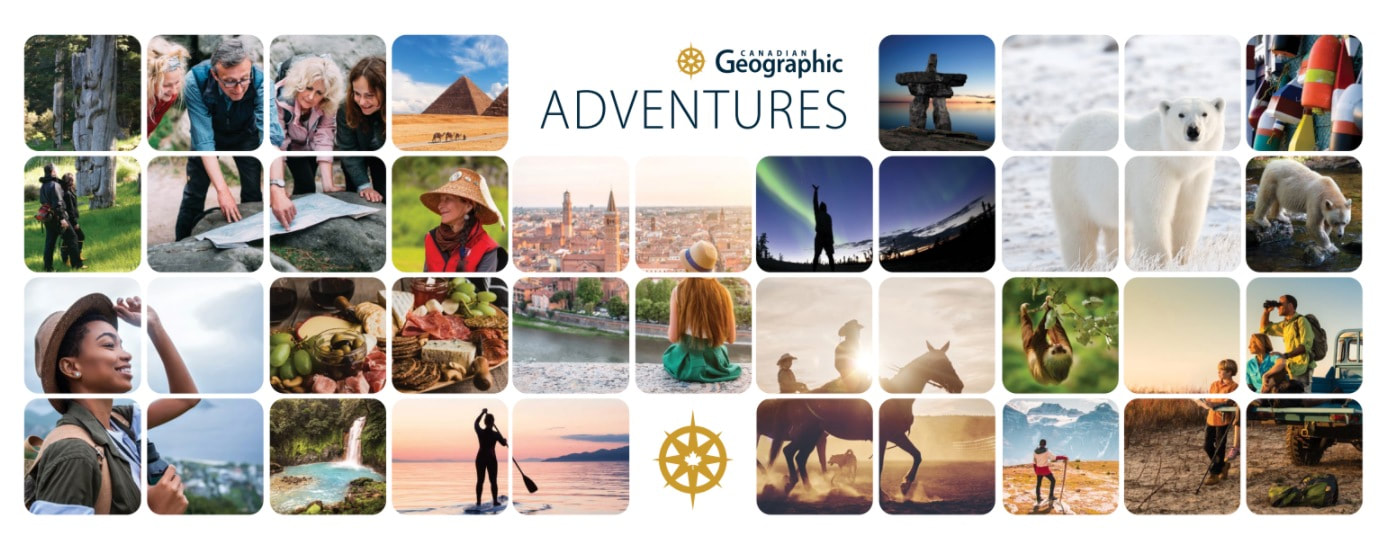

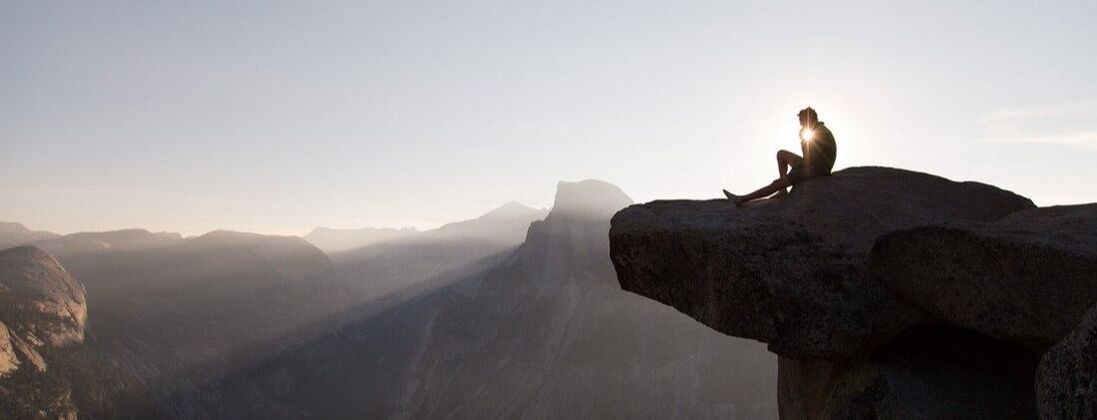
 RSS Feed
RSS Feed

